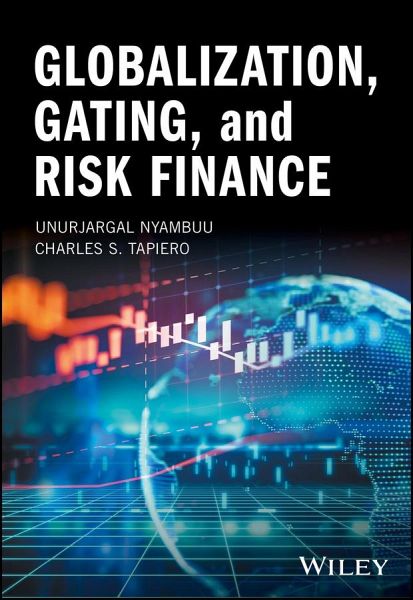
Globalization, Gating, and Risk Finance
Versandkostenfrei!
Versandfertig in über 4 Wochen
98,99 €
inkl. MwSt.
Weitere Ausgaben:

PAYBACK Punkte
49 °P sammeln!
An in-depth guide to global and risk finance based on financial models and data-based issues that confront global financial managers.Globalization, Gating, and Risk Finance offers perspectives on global risk finance in a world with economies in transition. Developed from lectures and research projects investigating the consequences of globalization and strategic approaches to fundamental economics and finance, it provides an approach based on financial models and data; it includes many case-study problems. The book departs from the traditional macroeconomic and financial approaches to global a...
An in-depth guide to global and risk finance based on financial models and data-based issues that confront global financial managers.
Globalization, Gating, and Risk Finance offers perspectives on global risk finance in a world with economies in transition. Developed from lectures and research projects investigating the consequences of globalization and strategic approaches to fundamental economics and finance, it provides an approach based on financial models and data; it includes many case-study problems. The book departs from the traditional macroeconomic and financial approaches to global and strategic risk finance, where economic power and geopolitical issues are intermingled to create complex and forward-looking financial systems.
Chapter coverage includes: Globalization: Economies in Collision; Data, Measurements, and Global Finance; Global Finance: Utility, Financial Consumption, and Asset Pricing; Macroeconomics, Foreign Exchange, and Global Finance; Foreign Exchange Models and Prices; Asia: Financial Environment and Risks; Financial Currency Pricing, Swaps, Derivatives, and Complete Markets; Credit Risk and International Debt; Globalization and Trade: A Changing World; and Compliance and Financial Regulation.
_ Provides a framework for global financial and inclusive models, some of which are not commonly covered in other books.
_ Considers risk management, utility, and utility-based multi-agent financial theories.
_ Presents a theoretical framework to assist with a variety of problems ranging from derivatives and FX pricing to bond default to trade and strategic regulation.
_ Provides detailed explanations and mathematical proofs to aid the readers' understanding.
Globalization, Gating, and Risk Finance is appropriate as a text for graduate students of global finance, general finance, financial engineering, and international economics, and for practitioners.
Globalization, Gating, and Risk Finance offers perspectives on global risk finance in a world with economies in transition. Developed from lectures and research projects investigating the consequences of globalization and strategic approaches to fundamental economics and finance, it provides an approach based on financial models and data; it includes many case-study problems. The book departs from the traditional macroeconomic and financial approaches to global and strategic risk finance, where economic power and geopolitical issues are intermingled to create complex and forward-looking financial systems.
Chapter coverage includes: Globalization: Economies in Collision; Data, Measurements, and Global Finance; Global Finance: Utility, Financial Consumption, and Asset Pricing; Macroeconomics, Foreign Exchange, and Global Finance; Foreign Exchange Models and Prices; Asia: Financial Environment and Risks; Financial Currency Pricing, Swaps, Derivatives, and Complete Markets; Credit Risk and International Debt; Globalization and Trade: A Changing World; and Compliance and Financial Regulation.
_ Provides a framework for global financial and inclusive models, some of which are not commonly covered in other books.
_ Considers risk management, utility, and utility-based multi-agent financial theories.
_ Presents a theoretical framework to assist with a variety of problems ranging from derivatives and FX pricing to bond default to trade and strategic regulation.
_ Provides detailed explanations and mathematical proofs to aid the readers' understanding.
Globalization, Gating, and Risk Finance is appropriate as a text for graduate students of global finance, general finance, financial engineering, and international economics, and for practitioners.













